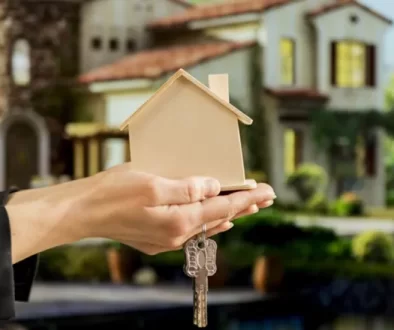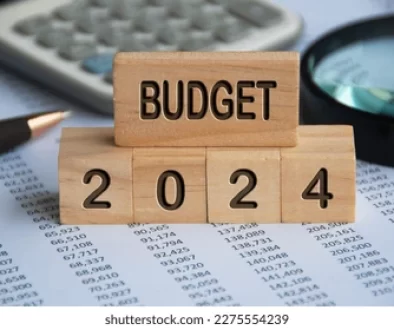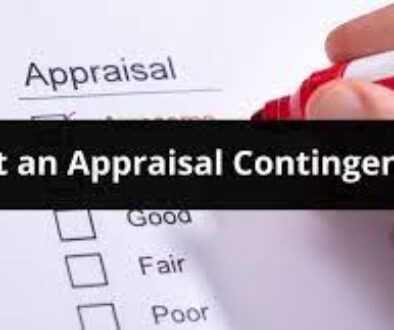House Poor
Buying a house is a bit like choosing a spouse. If you’ve chosen well, it can be a match made in heaven. But if you’ve gotten carried away on a romantic whim or have been oversold on the benefits of the match, unhappiness can ensue.
The expressions “house poor” and “house broke” refer to the situation where homeowners have bought homes beyond their means. They end up spending all their income on repairs and expenses, forgoing vacations and discretionary spending. Instead of being your sanctuary, your home becomes your albatross.
In this article, we’ll talk about what it means to be house poor and the problems associated with it. After discussing how people come to be house poor, we’ll go over how to avoid it and what to do if you already find yourself in this situation.
‘House Poor’ Defined
When someone is house broke, it means that they’re spending too much of their total monthly income on homeownership expenses such as monthly mortgage payments, property taxes, maintenance, utilities and insurance. This excess spending makes it difficult or impossible for them to achieve their other financial or personal goals.
You may be consistently making your house payment and paying for life’s necessities, but there’s not much leftover at the end of the month for you to enjoy. In the plainest of English, you’re broke.
You can be house poor regardless of your household income if you’re spending too much on your home. It doesn’t matter whether you’re a middle-income wage earner living in the Midwest or a multimillionaire with a Brooklyn brownstone. If the bulk of your income is spent on your home, it can prevent you from achieving your long-term financial objectives, or worse, make you resent the home that stands in the way of a lifestyle you enjoy.
So consider your pre approval amount as merely a starting point for your home affordability calculation. If you’re just beginning your home buying journey, it’s important to get pre approved as a first step.
And if you already own your home, refinancing to a longer term might just be the solution you need to lower your mortgage payments and relieve the financial stress of too-high monthly mortgage payments.
What Does It Mean To Be House Poor?
Your home is your castle. It’s the place where you’ll raise your family, welcome friends and make memories that last a lifetime. There’s also no denying that a home can be a major financial asset as part of your wealth and investment portfolio. With that investment, some monthly cost is worth the long-term benefits. However, the problem comes from overdoing it.
Your house and the expenses that go with it still represent only one piece of your monthly budget. Becoming house poor can affect your ability to save for retirement, pay off debt or afford other purchases. It can create feelings of stress and anxiety around your finances and make you feel as if you’re only one setback away from financial disaster. These problems can even put a strain on your relationships and your mental well-being.
How Do People Become House Poor?
Buying a home can be an exciting prospect. Maybe you’ve prequalified for a mortgage so you think you know the top end of your budget. You also have a checklist of everything you want in your house and you’ve found one that has it all – but it’s an older home that takes you right up to your pre approval limit.
Let’s consider Ryan, who is seeking pre approval. They are an avid amateur equestrian who is looking for a home. Their lender won’t know this about them. But they’ll certainly need to figure their horse-related expenses into their monthly budget and not merely rely on the lender’s pre approval unless they’re prepared to give up this aspect of their life in service to the mortgage debt or the home’s needed repairs.
Ryan could be an avid foodie who likes to enjoy trendy new restaurants at least once a month. Or someone who likes to travel. Whatever it is that you still plan on doing after you become a homeowner, make sure you factor that into the post-new-house budget you create to compare to the amount you are preapproved for.
Before making an offer on that home that may stretch your ability to afford the payment or make necessary renovations, you should take a second to reassess whether you want to risk your lifestyle by making your house poor. Remember, when you apply for mortgage pre approval, lenders only know you by your numbers. They don’t know how you like to live.
So, consider pre approval as the first step of a lengthy process which ends when you move into your new home. But it’s an important first step because it lets real estate agents and home sellers know you’re a serious buyer.
And if you thought the pre-approval amount was the upper limit of your budget when you purchased your home, you can likely right-size your monthly mortgage payment by refinancing your mortgage.
Becoming House Poor: The Costs Of Homeownership
Now that we know what it means to be house poor, how do people get that way in the first place? First-time homeowners may simply not plan beyond
– and the down payment and closing costs are just the start of the lifelong expenses of owning a home
But the costs of owning a house are significant and you should include them when you’re creating your house buying budget. More than the monthly mortgage payment goes into buying a home.
Homeownership Costs
It’s a good idea to do research on future household expenses before moving forward with a home purchase so that you’re not surprised in a big way.
Many expenses may cost more than you think they will, so the more you know going in, the better you can be prepared. If you’re moving from an apartment or condo to a single-family house, you may be shocked when you get your first utility bill, which may be higher than you’ve been paying for a smaller home. Don’t forget to factor in costs like increased transportation expenses or services like landscaping or snow removal.
On top of the greater expense, there’s just a lot more of them. For example, if you’re moving from a city apartment where you dispose of garbage through a chute, you’ll have to buy garbage cans and bags. If you’ve never had to think about the garbage cans, you may be surprised to learn their cost and how many you’ll need. Also, you’ll need items like shovels, rakes, wheelbarrows and household tools for basic lawn maintenance and repairs. It adds up quickly.
Here are some of the big-ticket expenses beyond the mortgage to think about.
Property Taxes
Although these are usually included in your monthly mortgage payment along with homeowners insurance if you have an escrow account, one of the important things to realise is that your mortgage lender is pre approving you based on an estimated initial property tax.
This is one of the biggest items that changes after you buy a home. Your home’s previous owner disclosed what they had been paying based on the home’s assessed value. If you paid significantly more than their assessed value, your taxes rise accordingly because your purchase price becomes the new assessed value of the home.
Visit the website of the property taxing authority where your new home is located to find out exactly what your tax bill will be after purchase, whether there are any property tax rate hikes on the horizon and how often property values are assessed.
Homeowners Association (HOA) Fees
If the home you’re considering is located within a homeowners association,you’ll have to pay HOA fees in addition to property taxes and homeowners insurance. Unlike these other expenses, though, HOA fees are not included in an escrow account and aren’t part of your monthly mortgage payment.
Because of this, they can be easy to forget until they become due. They also tend to rise over time. There can also be special assessments to meet major maintenance costs. Check the homeowners association meeting minutes for at least the past year to see if there are any plans for major maintenance on the horizon.
If you fail to stay current on your HOA fees, you may face penalties and interest rates on those fees. If you don’t pay, eventually you’ll have a lien placed on your payment which will make it difficult to refinance or sell your home.
Maintenance Expenses
Something is eventually going to break in your home. While it’s impossible to say when, you can make some educated guesses based on how old the home is and when major systems, the roof and any included appliances were last replaced. Maintenance costs are often between 1 – 3% of the purchase price of your home each year. Whether you can expect to be at the low or high end of that range often depends on the age of your home.
If you’d prefer to have a stable home maintenance cost that handles unforeseen contingencies, you may want to consider a home warranty or, in a buyer’s market, ask the seller to include a home warranty with the purchase.
Becoming House Poor: Changes In Circumstances
No one ever plans for it, but the fact is that one day we may all lose our jobs unexpectedly, or we could become ill or disabled and unable to work. These things can ruin your best-laid plans. Whatever the case, you’re going to be in a better position for the future if you’re not stretching your budget to the max in order to pay housing expenses.
How Can I Avoid Becoming House Poor?
If you’re thinking about buying a home, first create your post-home buying budget. Make sure you include line items for things you love and do not want to give up. By all means get a handle on your mindless spending, but don’t plan on giving up everything you love when you buy a house or you’re going to come to resent your home.
Consider buying a starter home or a condo if you’re not yet ready to give up your lifestyle in favour of owning your forever home. Starter homes and condos tend to be smaller in size and closer to urban centres, which tends to reduce transportation costs.
Don’t forget – you’ll have to join a condo association,which is the same thing as an HOA, so you’ll have to factor that cost. But you won’t be responsible for any outdoor maintenance, and you might even be able to cut some of your current expenses, like a gym membership, if that amenity is included in your condo fees.
You can consider turning your starter home into a rental home when you’re ready to move, so it can become a source of income as well.
Finally, if you’re not planning on staying in the home more than 5 years, consider an adjustable rate mortgage with a low introductory interest rate. Plan to sell or refinance before the introductory period ends.
Avoiding The Poor House: What Percentage Of My Income Should Be Allocated Toward Housing?
While it would be foolish to say that there’s a one-size-fits-all approach to the right amount for a housing budget, there are a variety of methods you can use to help you determine how much you should realistically spend on a home. We’ll cover a couple of them here. The most important rule of all is to create a post-home buying budget that is realistic and reflects your lifestyle priorities and backing into a monthly mortgage payment and household maintenance budget that you can make
The 28% Rule Of Thumb
The 28% rule is a general guideline that says you should try to spend no more than 28% of your monthly gross income on housing expenses. To determine what your monthly homeownership budget should be under this rule, simply multiply your monthly income by 28%.
The idea is to give you room in your budget so that you’re not pushing the limits. It’s worth noting that sticking to a hard 28% limit for yourself may be tougher given the expense of some housing markets where home prices are extremely high. For example, those in the Big Apple or Silicon Valley may find it impossible.
One recent factor that may help mitigate this is that the forced nature of working from home in the time of COVID-19 has caused companies to reevaluate how often and if their employees need to be in the office. Because of this, you may find that you can live further out in the suburbs or even rural areas away from big city centres, which could help with affordability.
Debt-To-Income Ratio (DTI)
Debt to income ratio compares the amount spent on monthly instalment and revolving debt payments to your gross (pretax) monthly income. DTI is what lenders use to determine the amount of your mortgage approval.
There are two different types of DTI. Back-end DTI is what’s most often used in lending approvals. This compares all of your minimum monthly debt payments, including your mortgage, to gross monthly income. Meanwhile, front-end DTI (or housing expenses ratio) compares just your monthly mortgage payment to your income. This is also sometimes used in lending.
Experts recommend that your front-end DTI be no higher than 36%. For some loans, you may need this number to be even lower depending on your situation. The housing expense ratio can be a useful number to help make sure that you’re not spending a ton of money on the house at the expense of other efforts.
Once all of your other data is added in, you can be approved for a loan with a DTI as high as 60% if it’s a VA loan. For the best chance of approval on many other products though, it’s generally recommended that you keep your DTI at around 43% or lower.
DTI can be a useful metric in determining just how much house you can afford when making an offer. It’s just important that you don’t go to the very top end of your budget. Try to think about your expenses holistically.
What Should I Do If I’m Already House Poor?
If you’re feeling house poor right now, the best way to get yourself out of that situation is to lower your expenses or raise your income. In the next few sections, we’ll look at the expense portion of the equation before touching on income.
Refinance Your Home
Home values have generally been going up across most of the country, so you may have more equity in your home than you think. If you’ve done any renovations, this also has the impact of increasing the volume of the home. However you get there, having more equity in your home means less risk for lenders. This can translate into a lower rate when you refinance your mortgage.
Besides lowering your rate, you could refinance into a longer term. If you were in a 15-year mortgage, and lost your job five years into your repayment, you could refinance your remaining 10 years of repayment into a 30-year fixed loan to significantly lower your monthly mortgage payment. It could allow you more room in your budget. You could also choose to put more toward your payment to pay off the loan sooner if there came a time when you had more money available.
Sell Your Home
If you feel you can no longer comfortably afford the home you have, another option is to sell your home and downsize. On one hand, you might be leaving your dream home, permanently or temporarily. On the other hand, you’ll have the financial peace of knowing you’re now in a home you can afford. It’s an option to consider if you’re reassessing your finances.
Limit All Discretionary Spending
If you’ve experienced a recent financial shock like a job loss or unexpected big bill, you may be able to help yourself by limiting or eliminating discretionary spending for a while. Budget only for the things you must have.
This definitely isn’t fun, but it may be a necessary measure for you to take until a long-term solution is in place and the urgency that led to an austerity budget has passed.
Use Your Savings
If you’re really struggling, tapping emergency savings in the event of a shock could be a necessary short-term stopgap measure until you can get on better footing in the long term. While this isn’t something that should be taken lightly, emergency funds are kept up for the purpose of temporary crises.
This is generally a better solution than missing payments on a home or car, particularly if you’re trying to preserve credit in the event that the long-term solution is to refinance your current mortgage or downsize into a different home. Your best bet is to contact your lender, explain your circumstances, and work out a loan forbearance and repayment plan.
Raise Your Income
While it’s definitely true that it’s easier said than done, there are steps you can take to raise your income. When put together with sensible spending limitations, this could give you more security in being able to afford your home.
It may seem intimidating to ask for a raise, but there’s no reason to feel guilty for asking to be paid what you’re worth. The worst they can do is say no, freeing you to begin looking for higher-paid employment.
If you can make a good case, it doesn’t hurt to ask. Be prepared to back your case for a raise with strong evidence of your performance and how it’s driven success across your team, department and even the company. The more you can make yourself seem like an irreplaceable contributor, the better.
If a raise isn’t in the cards, another viable way to boost your income might be a second job. Although this may not sound appealing, COVID-19 has only accelerated the trend toward the gig economy that started a few years ago.
It could be something like personal shopping or food delivery. You might also be able to pick up freelance work you can do from home on sites like Fiverr or Upwork. These opportunities make it even easier to pick up extra money while working on a flexible schedule that accommodates your current career goals




